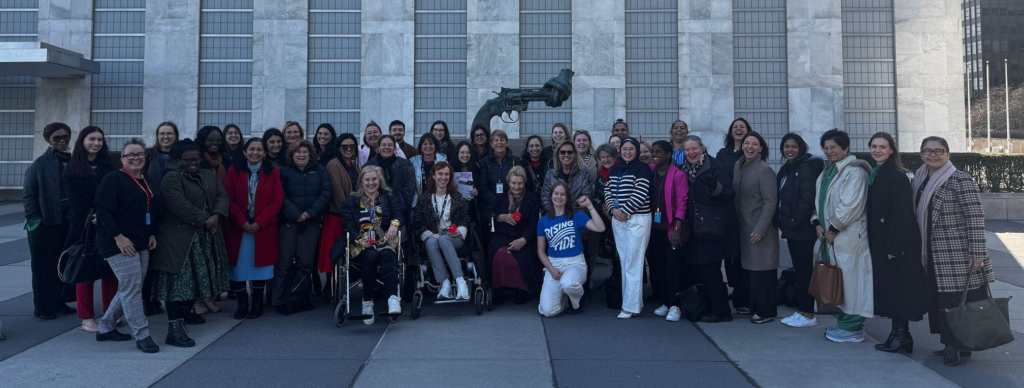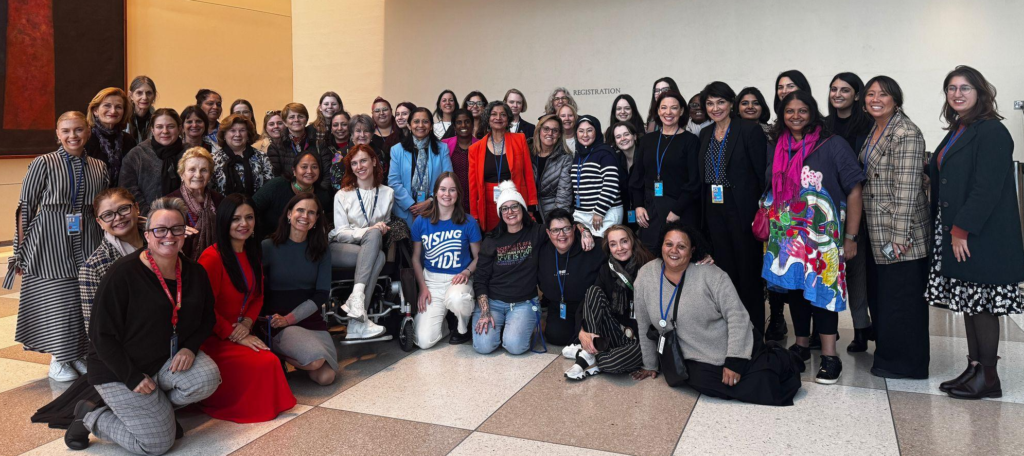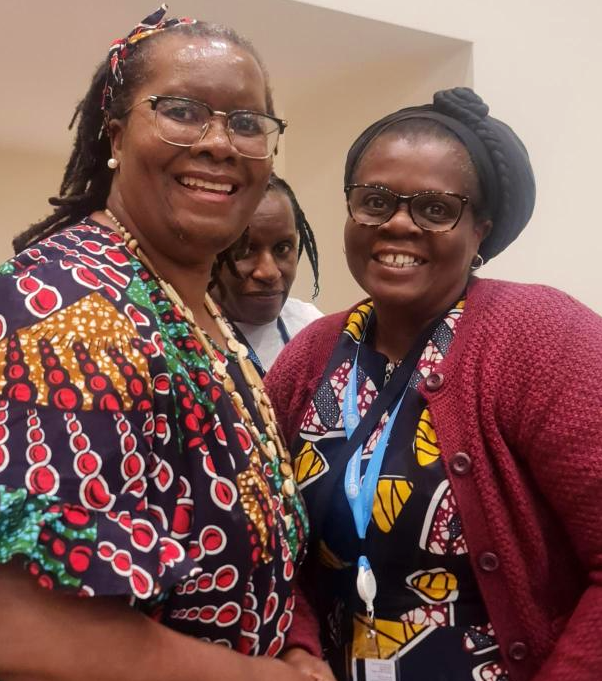
As the 69th gathering of the United Nations Commission on the Status of Women (CSW69) concludes in New York, DCA reflects on the discussions, debates, and commitments made over the past two weeks. This year’s session was particularly significant as it marked 30 years since the Beijing Declaration and Platform for Action (BPfA)—a landmark global commitment to gender equality. Yet, three decades later, the urgency to act has never been greater. The rights of women and girls are under attack, with rollbacks and resistance threatening hard-won progress. For DCA, CSW69 offered valuable insights into how organisations can play a pivotal role in advancing gender equality.
A focus on intersectionality
Intersectionality and the need for intersectional approaches to data emerged as a central theme at CSW69, echoing discussions from CSW68. Throughout the gathering, government representatives and civil society organisations (CSOs) emphasised that the pursuit of gender equality must acknowledge the diverse and complex experiences of women globally. Speakers highlighted the unique and compounded challenges faced by women who are furthest from the axes of privilege. The consensus was clear: data collection and analysis must acknowledge these intersecting identities and experiences to effectively address gender inequality in all its forms.
DCA contributed to this conversation through its presentation on “Women and Intersectionality at Work: Inclusive Approaches to Organisational Leadership.” This session reinforced the importance of applying an intersectional lens to workplace initiatives aimed at achieving gender equality. For organisations, this means moving beyond one-size-fits-all approaches and centring the voices of women who experience compounded forms of discrimination.
The business imperative: The role of organisations in driving women’s economic empowerment
The focus on women’s economic empowerment specifically highlighted persistent barriers such as unequal pay, limited access to leadership roles, and unpaid care work. There was a strong emphasis on the role of businesses and organisations in driving change, with a clear call to action for organisations to adopt gender-responsive supply chains, invest in women-led enterprises, and implement policies that promote equal pay and flexible work arrangements. Prioritising women’s economic empowerment is not just a matter of social responsibility—it’s a business imperative.
Building resilience against funding cuts and policy rollbacks on gender equality
A key reflection at CSW69 was the distressing trend of funding cuts and policy rollbacks, which threaten to undo decades of progress in gender equality. Speakers across governments and CSOs painted a sobering picture: despite historic achievements, financial retrenchments and weakened policy frameworks are placing critical programs at risk. These discussions were critical reminders of not only the need for sustained advocacy and strategic investment in gender equality initiatives, but also for financial resilience to ensure that workplaces are well-equipped to withstand political and economic shifts to maintain D&I programs. This is crucial for driving long-term sustainable and impactful change.
Closing the gender digital divide
Women continue to face barriers in accessing technology, digital literacy, and STEM opportunities—exacerbating existing inequalities in today’s tech-driven world. Discussions at CSW69 underscored the importance of integrating gender equality into digital policies globally. Closing this gap is critical not only for fostering innovation but also for ensuring equitable access to opportunities in a rapidly evolving economy.
An unprecedented focus on migrant women
CSW69 placed an unprecedented emphasis on the challenges faced by migrant women, highlighting their unique marginalisations, and the urgent need for targeted support including at work. This heightened focus reflects a growing recognition that migrant women often face compounded marginalisation compared to both male migrants and non-migrant women.
The role of allyship and solidarity across borders
Global solidarity was a key theme at CSW69. Amid growing resistance to gender equality worldwide, allyship—both within organisations and across borders—is essential for resisting rollbacks on progress.
DCA’s presentation on “Uniting Across Borders: Global Allyship in the Face of Resistance” echoed these sentiments, emphasising how communities, businesses and organisations can unite across sectors and geographies to champion gender equality collectively.

CSW69 session outcome
An important outcome of CSW69 is the adoption of the Political Declaration, reaffirming the commitment to fully implement the BPfA. This crucial document outlines key actions to accelerate progress on gender equality, including measures to address poverty, eliminate violence against women, and ensure women’s full participation in decision-making.
A call to action for DCA member organisations
As CSW69 concludes, one message stands clear: bold action from all sectors is imperative to achieve gender equality. Whether it’s through embracing intersectional leadership, empowering women economically, addressing funding vulnerabilities, or closing the digital divide, organisations have the power to drive meaningful change. Every internal policy review, every new initiative, and every alliance formed contributes to a broader global movement.
For workplaces, this means a steadfast commitment to learning, adapting, and acting on the insights gained at CSW69. By embedding these principles into your organisational culture, you can help ensure that gender equality is not merely an ideal, but a lived reality for all women within your organisation and beyond.
As we leave CSW69, we are reminded that every step we take – however small – builds a more inclusive, collaborative, gender equal future. It’s up to us, as organisational leaders and change-makers, to turn these insights into tangible actions that drive lasting change.


